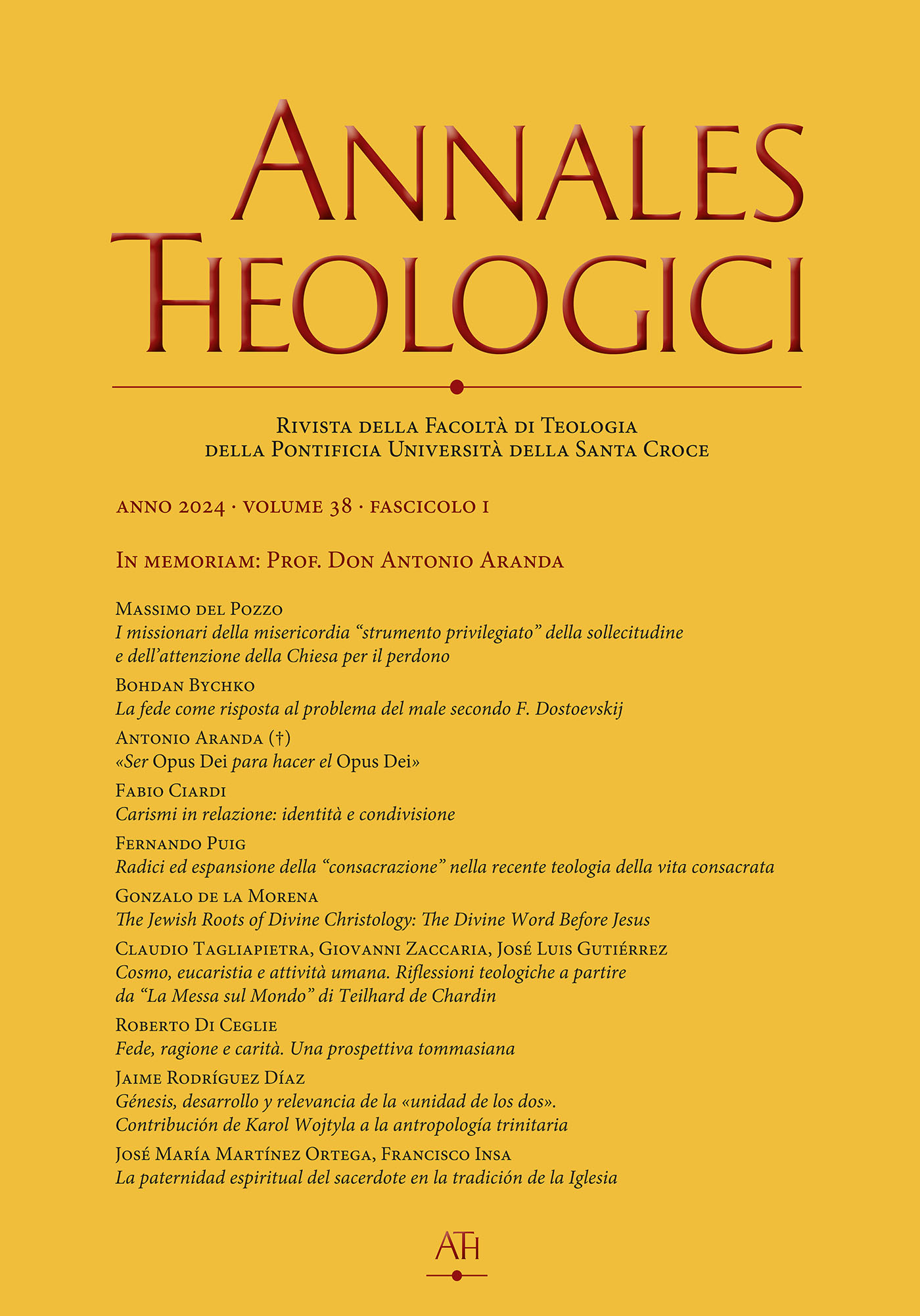Génesis, desarrollo y relevancia de la «unidad de los dos». Contribución de Karol Wojtyla a la antropología trinitaria
DOI:
https://doi.org/10.17421/ATHath381202409Keywords:
“unity of the two”, Uniduality, Communio Personarum, RelationalityAbstract
The article discusses the notion of the “unity of the two” in the work of Karol Wojtyla, who later became Pope John Paul II. The author argues that this notion is fundamental to developing an anthropology inspired by the Trinity, drawing on the contributions of theologians such as Von Balthasar, Klaus Hemmerle, Piero Coda and Marc Ouellet. This notion refers to the mutual and reciprocal love between two individuals that creates a new entity, an “us”, while respecting the individuality and autonomy of each person. Wojtyla developed this notion theologically from his interdisciplinary studies of mysticism, poetry, and philosophy. The article also reflects on the link between the love of divine persons and the communion between human persons, pointing to the experience of masculinity and femininity as an essential element for self-awareness and the experience of the body as a gift.








